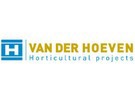It will come as no surprise that growing vegetables in the Gulf region is no simple task and takes different demands from growing them in Northwestern Europe. A hot and sometimes humid climate along with severe water shortages make growing crops here a major challenge. In recent years, Van der Hoeven Horticultural Projects has invested heavily in the development of greenhouse concepts that offer technical solutions to such challenges. This has earned the company from Den Hoorn a strong position in the Gulf region. They have been a partner of the Dutch Greenhouse Delta (DGD) for a number of years, helping to capitalise on all the opportunities that exist.
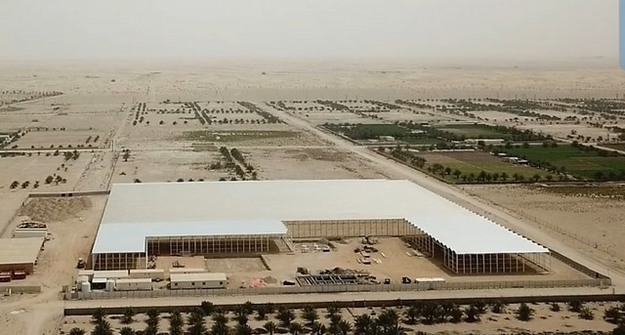
Van der Hoeven Horticultural Projects is a greenhouse builder that delivers turn-key greenhouse projects worldwide. The company has its own R&D department and develops, among other things, new cultivation systems for diverse climatic conditions. Bas Duijvestijn has worked as Sales Manager at Van der Hoeven for four years and has been commercially responsible for the Gulf region for one and a half years. “In this role, I am the link between the technical preparation in the Netherlands and the customer in the region”, says Bas. He comes from a grower's family but also worked for several years as a lawyer. “My work at Van der Hoeven consists of relationship management, acquisitions and the supervision of projects - from quotation to completion.”
Hospitality
Bas enjoys working in the Gulf region. He flies to the area about once a month. “Personally, I particularly enjoy the hospitality that exists there and how you are made to feel welcome. It is part of their culture to look after guests generously, which is obviously very nice.”
He also says it is enjoyable working there because of the great position Van der Hoeven has built up in the Middle East. "Four years ago, we built a tomato nursery of more than 11 hectares in Al-Ain in the United Arab Emirates. This was the first large-scale modern greenhouse in that region.”
The company won the project thanks to its technological solutions for growing in a hot and humid climate. “Our ModulAIR and HACo greenhouse concepts offer cooling options that make it possible to create a suitable greenhouse climate even in the middle of the desert. It's great that with our Western technology we can offer solutions to the problems that growers in the Gulf region are struggling with.”
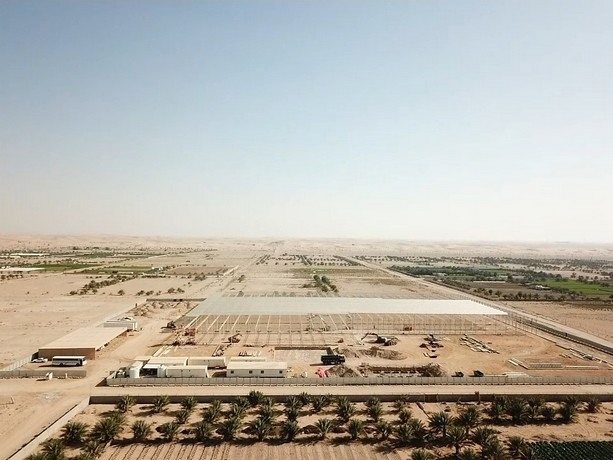
Challenges
Like many other areas with large concentrations of population, the Gulf region offers great opportunities for producers of greenhouse technology. “The world's population is growing and so is the demand for high-quality and sustainably grown fruit and vegetables. In this respect, the Gulf region is no different,” says Bas. “Local growers here are particularly struggling with efficient cultivation in the desert climate and the severe water shortage. In addition, more and more entrepreneurs and consumers are becoming more conscious about sustainability. Greenhouse horticulture offers many opportunities for producing food with a low environmental footprint.”
Armela Farms
Van der Hoeven's latest project in the Gulf region is a textbook example of this. It is a two-hectare glasshouse lettuce farm, which is being built for Armela Farms and will be completed in the middle of autumn 2021. “For several years, these entrepreneurs have seen it as their mission to grow leafy vegetables locally in a high-quality and sustainable manner for customers such as fast food chains, supermarkets and international trading companies. They had been growing vegetables in tunnels for some time and wanted to take a step forward. Two years ago they came knocking at our door. ‘We can grow lettuce, but we can do much better if we have the best technology available,’ they said.”
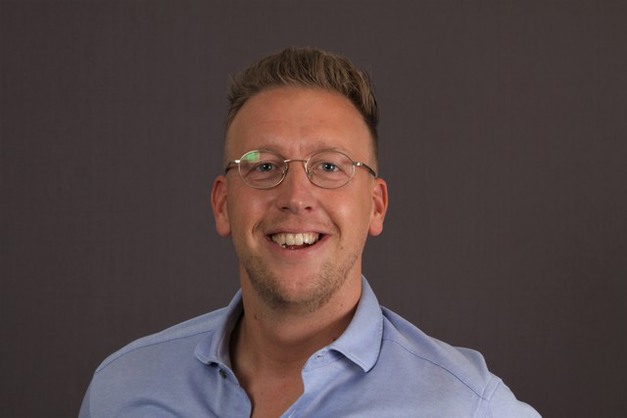
Bas looked at Van der Hoeven's in-house technology, the climatic conditions and together with the client arrived at a design solution that best met their demands. “Leafy vegetables are the most vulnerable horticultural crops. That's why I can safely say that the technical complexity was enormous and so was the challenge. But not only does this brand new company have advanced climate control. From sowing to harvesting and packing: everything is fully automated.”
Closed greenhouse principle
The greenhouse employed by Armela Farms is based on the ModulAIR concept. This is a semi-closed greenhouse, the result of further development of the closed greenhouse principle and specifically intended for warm and drier climate regions. “This greenhouse can run semi-open in the winter and completely closed in the summer months. It virtually seals itself shut, recirculating almost one hundred per cent of both the air and the supplied CO2. The cooling capacity of this concept is of course essential for the Gulf region.”
The greenhouse is built with a corridor along the facades. Here, the air is conditioned to the required temperature and then blown into air hoses laid under the plants using fans. The air spreads through the greenhouse via these porous hoses. “The window vents are only opened to regulate the air pressure. A small amount of overpressure is created in the greenhouse to ensure a uniform indoor climate”, Bas explains.
The greenhouse developed for Armela Farms contains a huge amount of technical innovations. Bas: “Everyone always looks at your latest project, and if you have a good example that attracts other interested parties, that's great. As Sales Manager, I can't beat the word-of-mouth advertising from the growers themselves!”
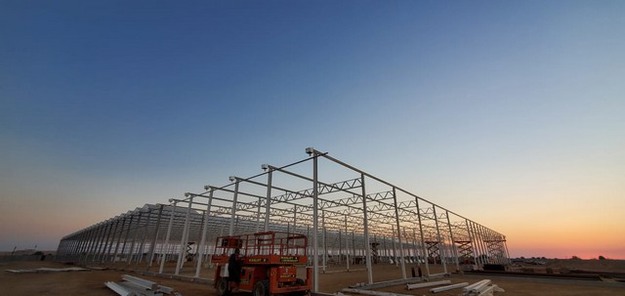
Tigers
Bas already mentioned the renowned hospitality of the region. During his business trips, the Sales Manager meets all sorts of people, such as (potential) customers, government representatives, investors and technologists. He drinks cups of tea at special locations and sometimes finds himself in settings that you could only imagine in films. “Like the time we had a meeting in a palace in a room with a glass floor under which tigers were walking back and forth”, he laughs.
Bas often travels alone to the Gulf region, but colleagues frequently accompany him. Certainly once the design phase of a project is kicking off. “I am far from being bored with this part of the world and am looking forward to the coming years, because the Gulf is a huge growth region.”
Supply chain
Bas sees many more opportunities in the Gulf region, also for other suppliers and for less complex crops. In his opinion, this could also include very large projects that will involve providing food for entire city regions. “No matter how you build, the main issues here are always water scarcity, energy supply and supply chain. For the chain to work better, it's an advantage if you, as a grower, can offer more certainty about the quality and quantity of your upcoming harvest. This is an excellent trick that we, the greenhouse horticulture sector, have already mastered.”
As soon as opportunities arise at the level of entire cities or even states, the Dutch Greenhouse Delta comes into play as a partner, he states. “They are there to 'brand' the Dutch knowledge and expertise as a whole. To let investors and governments know what we have to offer. That's what it's all about.”
For more information:
Dutch Greenhouse Delta
[email protected]
www.dutchgreenhousedelta.com
